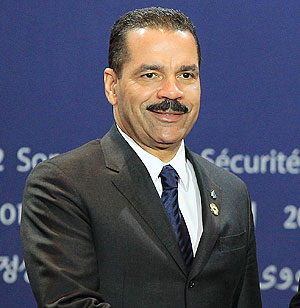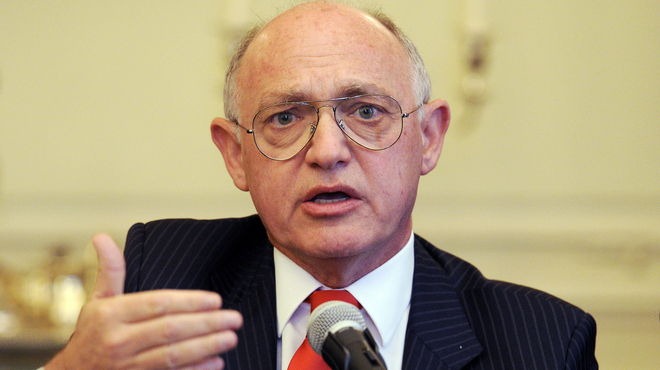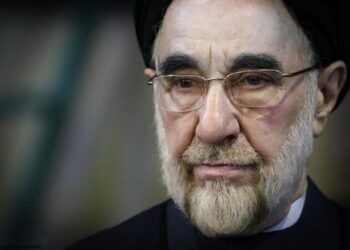December 29, 2017

The latest twist in the quarter-century tale of the bombing of the Jewish community center in Buenos Aires has come under attack by foreigners who carry considerable weight.
A few weeks ago, former Argentine President Cristina Fernandez de Kirchner was indicted by a federal judge for treason, based on a deal she made with Iran that the judge said was designed to cover up Iran’s role in the 1994 bombing. (See Iran Times of December 15, page three.)
But the indictment is now under attack from Human Rights Watch, the New York-based human rights advocacy group that doesn’t often defend former presidents, and Ronald Noble, the former head of Interpol, the international police organization.

Part of the indictment slams Fernandez for seeking to kill Red Notices (something like an arrest warrant) that Interpol had issued for several Iranians earlier in the case.
But Nobel says Fernandez’ government never asked Interpol to drop the Red Notices, which tell police forces all around the world that police are seeking the arrest of a person.
Noble, an American who has since retired from Interpol, said in an email to the Argentine Judiciary last Wednesday that he wants to testify that Argentina under Fernandez did not ask to have the Red Notices lifted as part of a deal she signed with Iran.
The allegation she wanted the Red Notices killed is central to the indictment of Fernandez for treason.

. . . questions raised anew about competence of Argentine judiciary
If a judge allows Noble to testify, the treason case filed this month against Fernandez and 11 other top officials could crumble. She denies wrongdoing and calls the charge politically motivated. However, others say the entire Argentine justice system is simply inept and unprofessional. Nobel said years ago that Argentina never requested suppression of the Red Notices, so the fact that the Argentine judge made that allegation central to his indictment suggests considerable sloppiness.
The media commonly call the Red Notices arrest warrants. But Interpol doesn’t have arrest authority. The Red Notices are simply a means of notifying police forces all around the world that a police force somewhere has issued an arrest warrant.
In an email to an Argentine federal appeals court that was seen by Reuters, Noble said the Fernandez administration “always expressed its belief that the warrants should remain in effect,” the exact opposite of what the indictment asserts.
And, in fact, the Red Notices can be found posted on Interpol’s website today. They are for Ali Fallahian, the intelligence minister at the time of the bombing under President Rafsanjani, Ahmad-Reza Asghari, who was the chief of the Qods Force at the time, and Mohsen Rabbani, the cultural attache in Buenos Aires who is widely believed to be the central figures in laying out and executing the bombing.
(Interpol also approved Red Notices in 2007 for Mohsen Rezai, then commander of the Pasdaran, and Ahmad Vahidi, the third secretary of the embassy who was believed to be a Pasdar officer under cover and who subsequently became Iran’s defense minister under President Ahmadi-nejad. They are not currently on Interpol’s Red Notice list.)
However, further complicating the issue, The Algemeiner reported last week that just a few weeks ago, Iranian Foreign Minister Mohammad-Javad Zarif sent a letter to his Argentine counterpart, dated November 4, and saying both the Argentine and Iranian governments had “requested Interpol to end the obligations of that institution with respect to the [bombing] case.”
The accusation that the Fernandez government worked behind the scenes to clear the accused Iranians in the Jewish community center bombing in order to improve trade between Argentina and Iran is at the heart of the charge of treason brought against Fernandez.
She served as president for eight years before being succeeded by Mauricio Macri in 2015.
Others agreed that the treason charge against Fernandez appeared questionable.
“The indictment by Judge Claudio Bonadio of former President Fernandez, her Foreign Minister Hector Timerman, and 10 others, for ‘treason’ and ‘concealment’ points to no evidence that would seem to substantiate those charges,” Human Rights Watch (HRW) said in a statement last Tuesday.
Miguel Vivanco, Americas director for HRW, said, “This far-fetched indictment further tarnishes the credibility of the Argentine judiciary.”
The allegations against Fernandez drew international attention in January 2015, when the prosecutor who initially made them, Alberto Nisman, was found shot dead in the bathroom of his Buenos Aires apartment. An Argentine appeals court ordered the re-opening of the investigation a year ago.
Nisman’s death was classified a suicide, though an official investigating the case has now said the shooting appears to be a homicide. Nisman’s body was discovered hours before he was to brief Congress on the 1994 bombing of the Jewish center.
Nisman said Fernandez worked behind the scenes to clear Iran of any wrongdoing and normalize relations to clinch a grains-for-oil deal with Tehran that was signed in 2013. The Iran-Argentine agreement created a joint commission to investigate the bombing that critics said was really a means to absolve Iran.
The agreement came under widespread attack for approaching the ridiculous by making Iranian government officials part of an investigation into Iranian government officials.
One of those indicted, former Foreign Minister Hector Timerman, is Jewish and was at one time a director of the community center that was bombed. He wrote last week that the judge who indicted him, Claudio Bonadio, led the original investigation into the first charges that the bombing investigation had been corrupted to cover up those involved. Timerman said Bonadio was removed from that investigation in 2006, “charged with partiality and colluding to protect those who thwarted the initial investigation.”
Timerman said he signed the joint investigation agreement with Iran in an effort to give some movement to an investigation that had been stalled for two decades.














